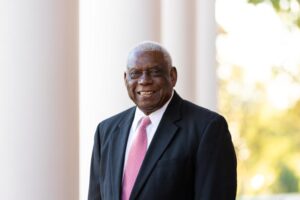The U.S. House Ways and Means Subcommittee on Social Security held a meeting today in Washington, D.C. discussing the Windfall Elimination Provision (WEP) and Government Pension Offset (GPO). The meeting’s replay is available here.
Led by Social Security Subcommittee Chairman Drew Ferguson (GA), the hearing examined the intended purpose, shortcomings, and alternatives of both WEP and GPO. Oral testimony at this hearing was from invited witnesses only. The Texas Retired Teachers Association (TRTA) provided written testimony to the committee members.
Ninety-five percent of Texas public school employees do not pay into Social Security through their work with Texas schools. However, many have other jobs before, during, or after their employment in education in which they do pay into the federal program.
TRTA believes that public workers deserve to have this issue resolved so that current and future retirees are no longer impacted negatively by these unfair provisions. The time to perpetuate bad public policy at the expense of those who cannot afford to lose their hard–earned Social Security benefits must come to an end.
Congress, working with stakeholder groups, must make resolving this issue a priority! Now is the time for a bipartisan solution to make a difference for all public workers hurt by the WEP and GPO.
TRTA looks forward to working with the U.S. House Ways and Means Committee to make progress on these provisions during this Congress. TRTA is working with its national coalition, which includes Mass Retirees and the Association of Texas Professional Educators (ATPE), to enact positive change for retirees.
Social Security Testimony
Congressman John Larson (CT) made a passionate opening statement emphasizing that the WEP and GPO are “blatantly unfair,” adding “we need not only a hearing—we need a vote.” Larson explained that Social Security reform has not occurred in 50 years. “Nobody is getting wealthy on Social Security,” said Larson. “I support the intent to repeal…but I believe it should be paid for.”
A series of witnesses with expertise varying from economists to research strategists provided expert testimony during the hearing. The witnesses offered a variety of opinions on solutions to reforming and repealing the WEP and GPO, as well as how to improve the solvency of Social Security overall. (A previous hearing held in November 2023 featured the testimony of public servants explaining how these provisions have negatively impacted their retirement income).
Jason Fichtner, Ph.D., Chief Economist for the Bipartisan Policy Center, explained that the original policy intent of GPO and WEP was to ensure fair treatment between those who work in jobs covered by Social Security and those who work in jobs where they do not pay in. He added that these provisions are “overly complex and unfair,” and that they should be addressed in tandem with Social Security reform.
He also added that the lack of transparency and communication with those workers who are hit by the WEP and/or GPO prevents those workers from being able to prepare adequately for retirement. His perspective was that now is the opportunity to “get the formula right.”
Rachel Greszler, Visiting Fellow in Workforce, Economic Policy Innovation Center, expressed that eliminating both provisions is not good policy, explaining that the estimated cost of repeal is $183 billion. Greszler added, “policymakers should implement fair and accurate fix.” She explained that the GPO was put into place when most women did not participate in the workforce, and that now, most are earning their own Social Security benefits. Her perspective was that these issues must be addressed within $22.4 trillion Social Security shortfall, and that Congress must address the program’s imminent insolvency.
Nancy Altman, President of Social Security Works, supports full repeal of the WEP and GPO, and believes Social Security benefits “should be increased across the board.” She supports Congressman Larson’s Social Security 2100 Act, a proposal that would increase and expand 12 essential benefits, and includes full repeal of GPO and WEP.
Charles Blahous, Ph.D., J. Fish and Lillian F. Smith Chair and Senior Research Strategist, Mercatus Center at George Mason University, explained that for workers who split their careers between jobs where they pay into Social Security and do not pay in, the issue is very complicated. He also stated that the WEP and GPO “fulfill a need but are not flawless,” and that they “under-adjust for some and over-adjust for others.” He said WEP and GPO do not represent ideal policy and represent the data that was accessible at the time of their enactments.
Blahous’s perspective is that there should be “parity” between workers who split their careers and those who do not. He emphasized the importance of doing no harm, and that any reforms should not worsen the shortfall. Fichtner said that although some income data is accessible for American workers, a true data exchange is needed to ensure the proper calculation of benefits for all workers. While Blahous did not disagree that better data is needed, he emphasized that Congress needs a new formula.
Congressman Jodey Arrington (Texas) made comments in support of a bipartisan solution to WEP and GPO, adding that momentum from resolving this issue could be used to improve Social Security overall. Arrington, who was inspired by a high school teacher to go into public service, said that Social Security is an “important safety net for seniors,” adding that it is “critical that we prioritize addressing this program.” Though he felt the witnesses had differing views on how to solve these issues, he asked for their support and the support of his fellow committee members to come together, utilizing a combination of policy and revenue solutions.
TRTA thanks Congressman Arrington for his dedication to our Texas public servants, and we look forward to working with him and the other members of the committee as progress is made on the WEP and GPO.
Moving Forward
Our members may now be wondering, “where does this issue go from here?” TRTA will continue to engage with our national coalition partners and work to find solutions for both the WEP and the GPO. Today’s testimony provided stark differences in views on how to move forward with fixing WEP and GPO, but also contrasted the vastly different views of the coming Social Security reforms that may impact the nation.
TRTA is closely tied to the Texas congressional delegation. We have, and will continue to have, a seat at the table. Our members are being asked for their input, and we will be an integral part of all discussions moving forward.
Nothing from today’s hearing, though, suggests that any action steps are imminent. While this is disheartening, it does mean that TRTA and our members and coalition partners will have more time to engage with Congress to get to best solution for public workers.
If there is only one major takeaway from today’s meeting, we believe our members should be encouraged that between November of 2023 and today, we have seen two congressional hearings discussing the impact and reform of the WEP and GPO. You are clearly making a difference by keeping the pressure on Congress!
Por favor, permanezca atento a la Línea interior as progress continues to be made on these issues.
Gracias
Gracias por ser miembro de TRTA. Estamos pidiendo a los miembros que por favor renueve sus cuotas con TRTA si aún no lo han hecho. Si conoces a alguien que no es miembro, por favor invítalos a unirse a nosotros! La unión hace la fuerza y la forma más segura de lograr el éxito es hacer crecer la organización.




